Inside Salisbury: Little Women transform Salisbury stage
An emotional and convincing performance at Studio Theatre
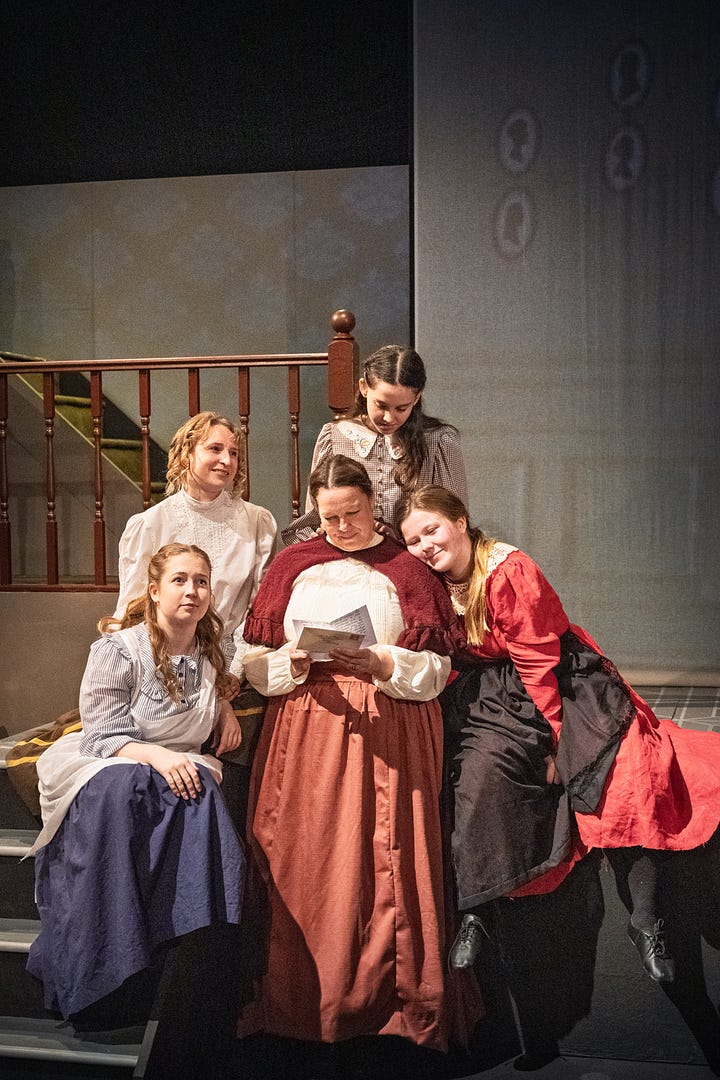
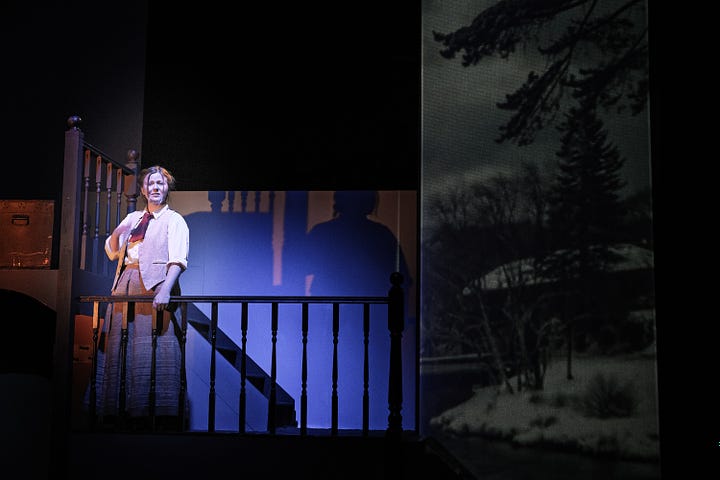
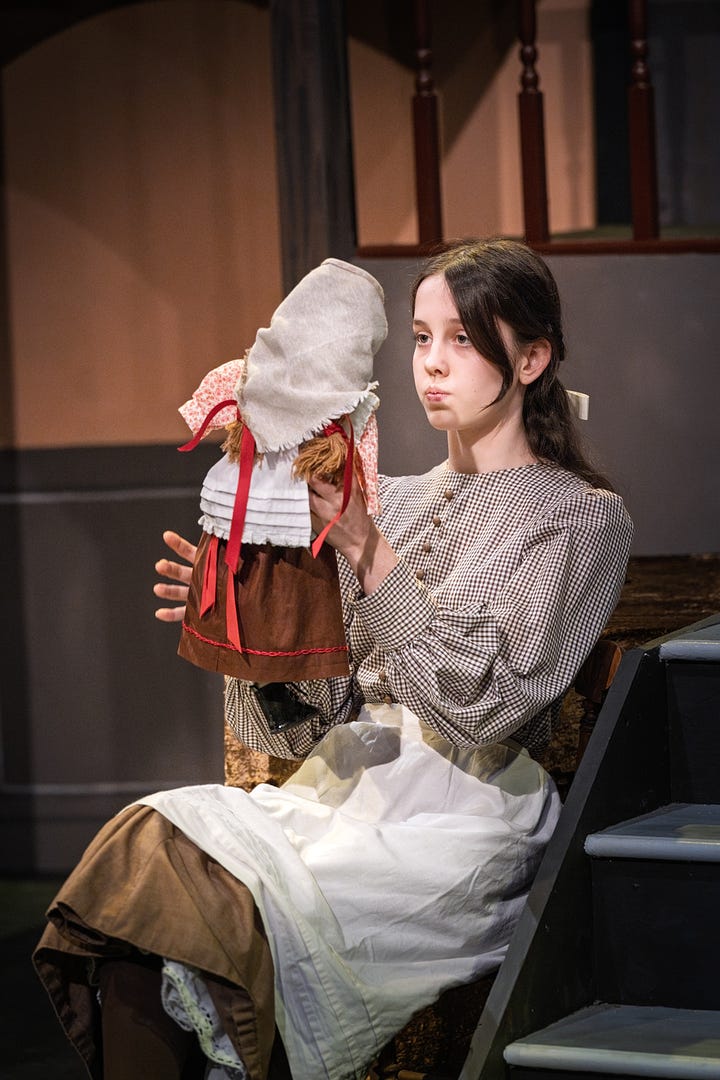
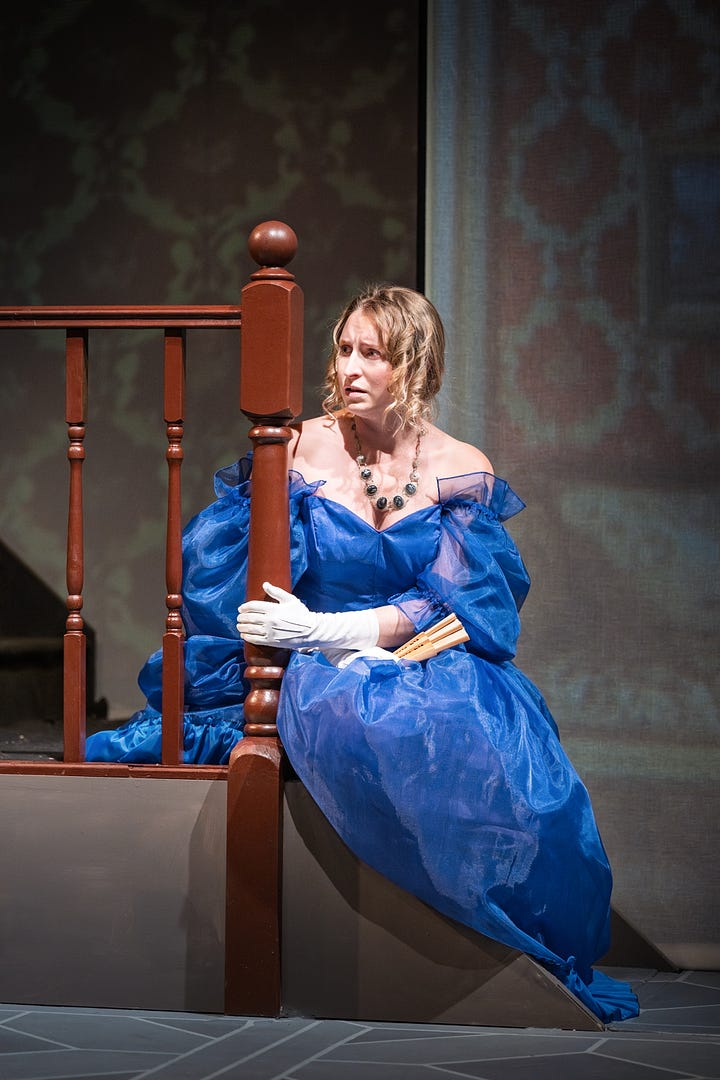
by Annette J Beveridge
A coming-of-age classic greeted theatre lovers this week with the story of Little Women on the stage.
If you haven’t read the book, Little Women follows the story of the four March sisters - Meg, Jo, Beth, and Amy, and sees their transformation to adulthood. It is 1862, the time of the American Civil War and the girls are feeling the emotional pain of their father being away. Each letter from him brings bittersweet joy.
Jo March (Martha-Rose McKeown) is the outgoing tomboy wowing the audience with her energy. Jo is against love and romance, she just wants to write and yearns for independence. Her developing friendship with Theodore Laurence (Philipp Nikolin) brought a sense of warmth and integrity to the play.
Read more: Get ready to unravel the clues
Meg March (Sarah Derry) is the older sister and the glue that holds them together. But there is a ripple of concern when Meg starts to attend balls and an attraction forms between her and John Brooke (Sonny Jarmin). Love beckons but if it develops, the sisters will soon be separated.
Amy March (Olivia Wordley) is charming, amusing and spirited, and brings more than a little petulance to the stage. From self-indulgent to a more compassionate adult, she is treated to a trip of a lifetime by Aunt March and manages to make the most of her time with possible suitors.
Beth March (Libby Richards) brings a delicate characterisation to the fore. She is the youngest sister, the peacemaker, but her life does not develop in the way the family hopes.
Read more: The glitz, glamour and fun of the panto
Aunt March (Jackie Pilkington) brings the crotchety older character to centre stage. With money, there is power, and she likes to shape the girls as she sees fit but that doesn’t make her very popular.
Mrs March, known as Marmee, (Tamsin Jacson) is a kind loving mother bringing compassion, patience and kindness to the girls. She is the rock, and is seemingly unshakable, until she receives some sad news.
This is a big production and each actor brings historic reverence to the role. The characters were well-developed and it was like watching time rolling back and it being brought into sharp focus. It was eminently believable.
I am always intrigued by the sets. This set has been built over three levels and is adaptive. All areas were used and conveyed different places and different emotional states.
The story addresses three themes - love, work and domesticity. It’s an emotional story, but there is laughter and joy too. The storyline is portrayed with conviction on stage and as each character develops, the play lifts you and carries you with it. For the duration of the play, I was in New England, in 1862, and what an appealing place it was.
Co-directed by Anthony Von Roretz and Jill Redston, this is a production which is worth seeing. The play closes on Saturday, December 14.
Photos by Trinity Photography




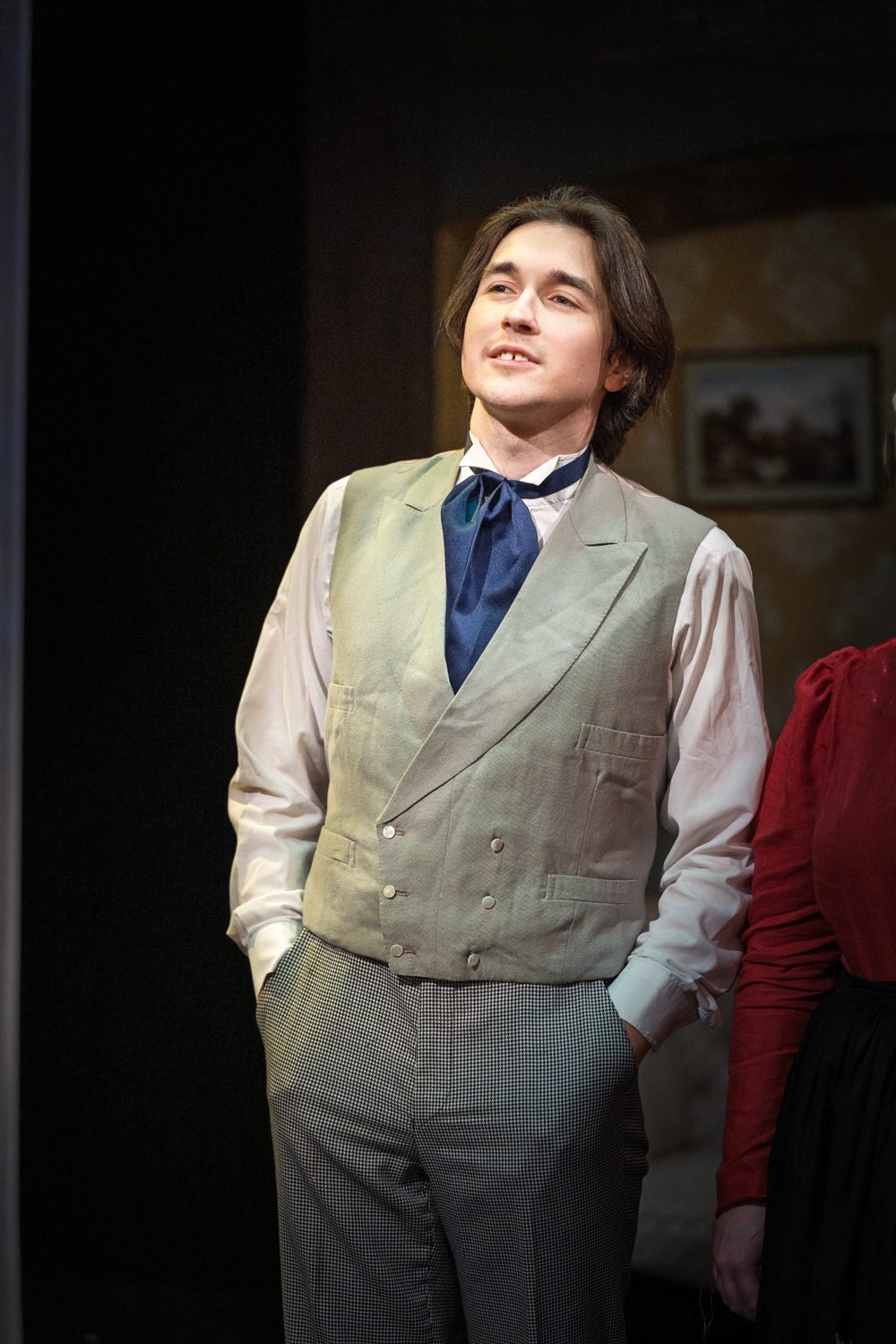
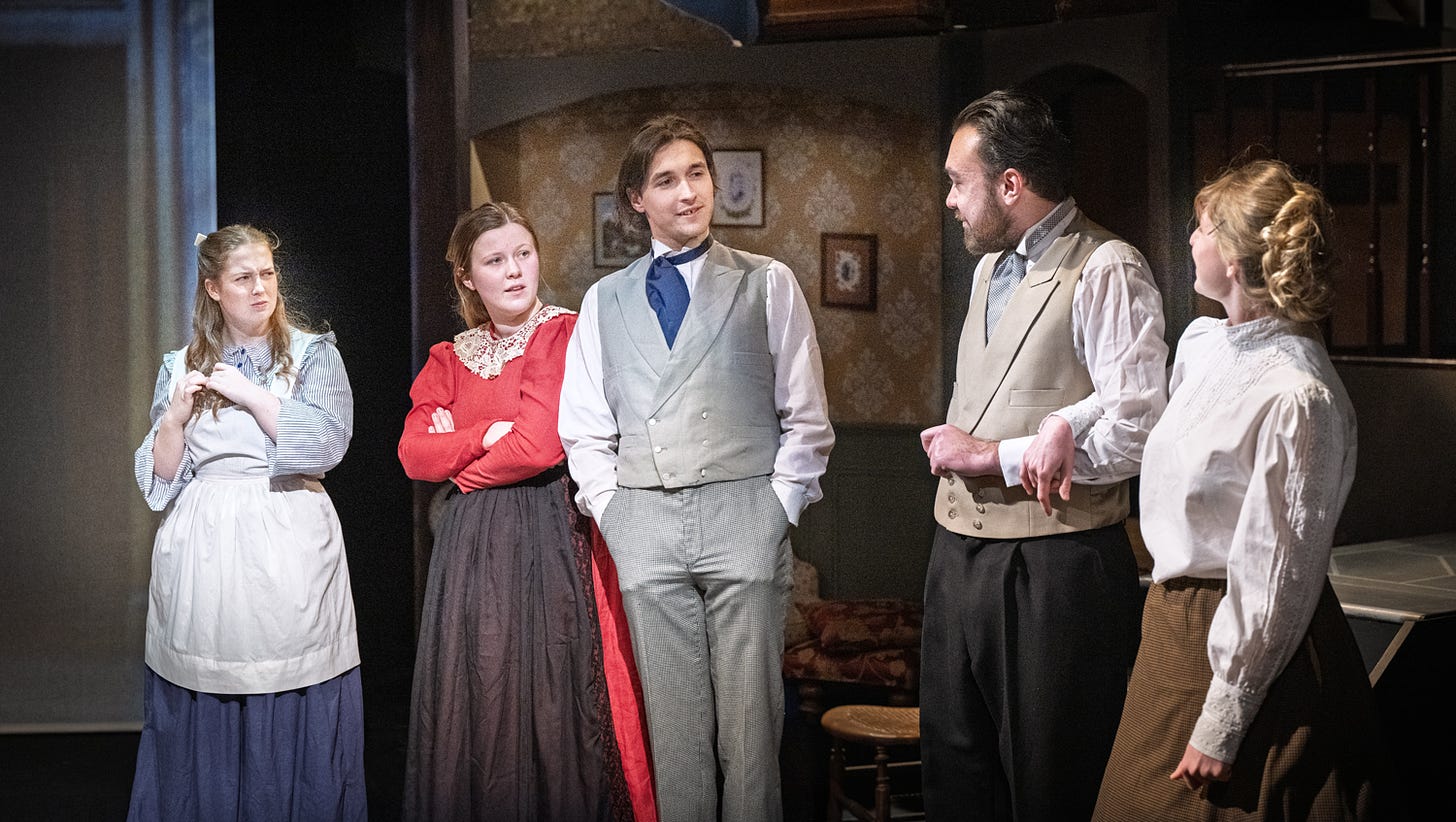
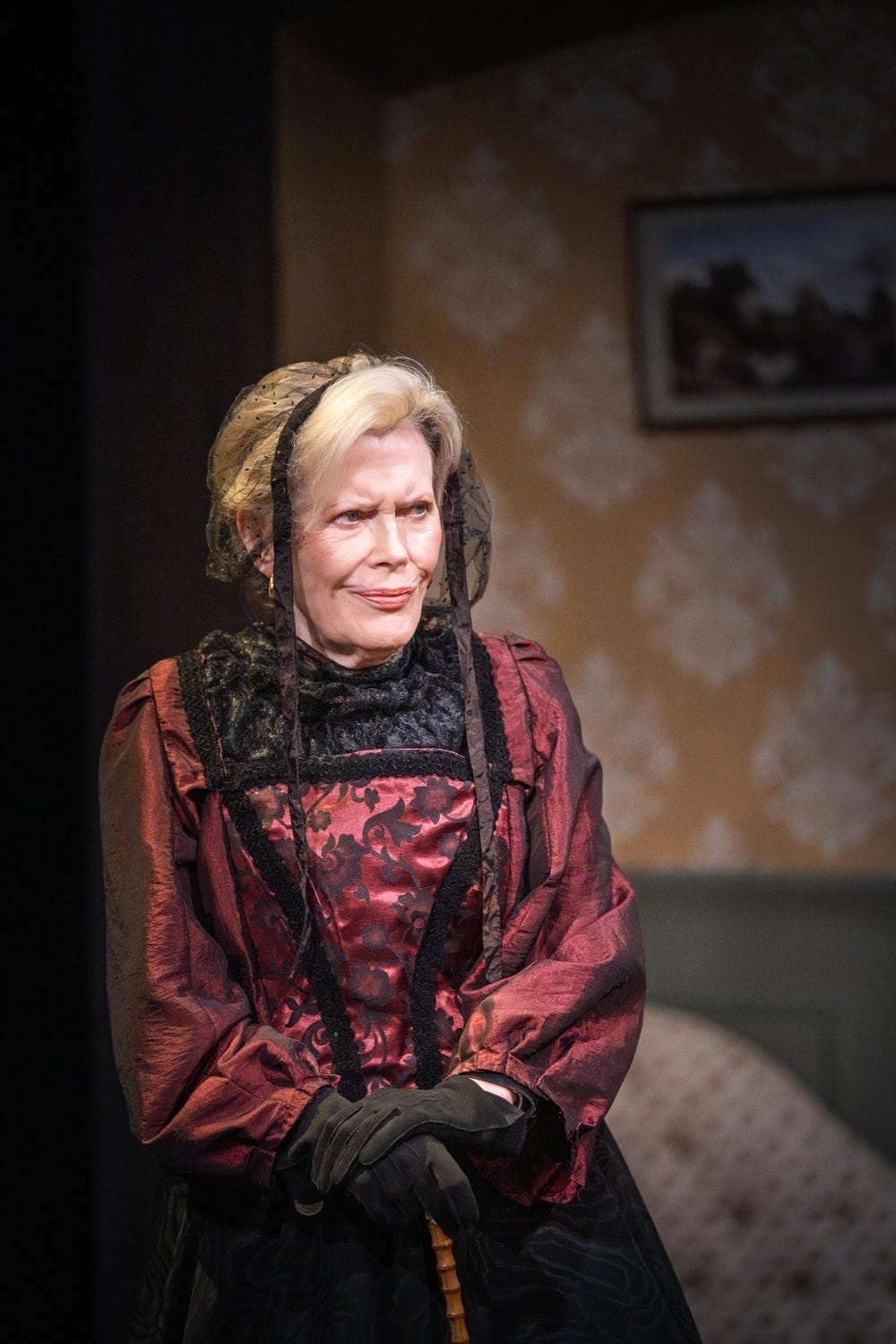

I absolutely loved the play!
I was struck by the coincidence of Jo's eventual husband being so similar to Charlotte Brontes great love.
I later realised that the author of Little Women, Louisa May Alcott, was almost obsessed with Charlotte Bronte.
Bronte was a huge celebrity in the 19th century and Alcott read her biography, written by Mrs Gaskell. Alcott didn't miss the parallels of Charlotte having two sisters and a brother, while she had three sisters.
The death of Beth March might be compared to that of Anne Bronte.
I was a bit sceptical of the old fashioned idea that all the March girls had to get husbands (infact, this play meshes the book 'Little Women' with its sequel, Little Wives.') So it was interesting to learn that Louisa Alcott never married and had fought against l her autobiographical namesake being given a stereotypical suitor.